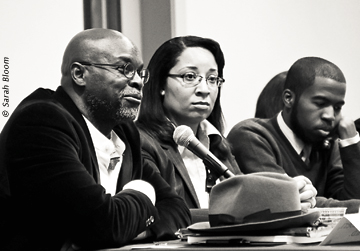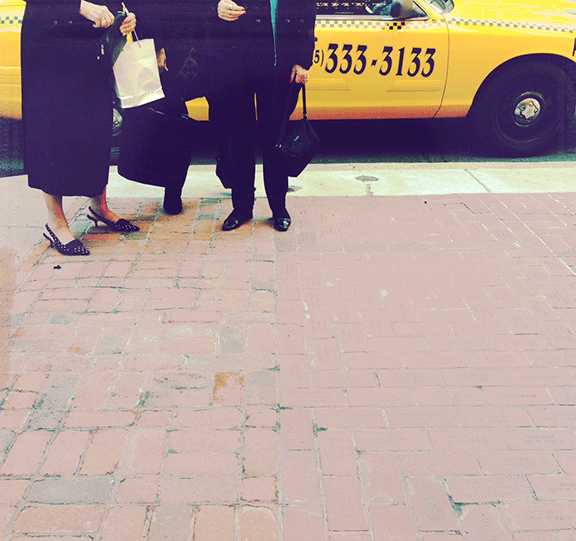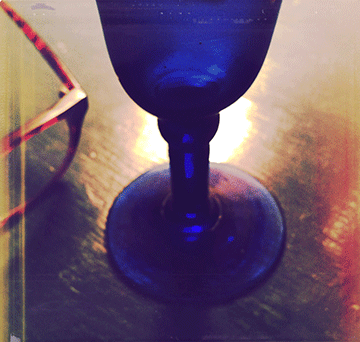
“For us, every decade is important, because we are still challenging the institution in a lot of ways,” says Camille Zubrinsky Charles, the Edmund J. and Louise W. Kahn Term Professor in the Social Sciences, professor of sociology and education, and director of the Center for Africana Studies—which kicked off its 40th anniversary celebration over Homecoming weekend with a pair of panel discussions featuring current students, alumni, and faculty. “In environments where your existence will often be challenged, every 10 years counts.”
Charles is referring both to the battles in the 1960s and 1970s to establish Africana studies as a subject for teaching and scholarship in higher education and to the continuing skepticism about the discipline in some quarters. Here at Penn, that original struggle included repeated student demands for more black history, literature, and other courses, and for black faculty to teach them. Those protests culminated in the founding of the Afro-American Studies Program in 1971-72, with the writer John Edgar Wideman C’63 Hon’86 [“Wideman on Campus,” July|Aug 2000], then an associate professor of English at Penn, as its first director.
In 2002 the program was renamed the Center for Africana Studies, at which point it merged with the Center for the Study of Black Literature and Culture. The new name also acknowledged the broadening scope of the Africana Studies curriculum to include all aspects of the African diaspora, in addition to the black experience in America, says Charles, who joined the Center around that time, serving as faculty associate director before becoming director in 2009.
The Center is housed in the School of Arts and Sciences, but draws on relevant courses and faculty from schools across the University for its curriculum. This variety was a key advantage as the Center has revamped its undergraduate major. “We moved from a really traditional Afro-American Studies kind of major to one where you can concentrate on a geographic region, or you can focus on a discipline,” Charles notes. “So you can study Africana Studies from a sociological perspective, or an anthropological perspective, or from English. Or one could conceivably actually do both of those things, and pick both a geographic region and a disciplinary concentration.”
On a more practical level, the “idea was also to make it easier to double major because that’s becoming increasingly popular,” she adds. “And it also, I think, satisfies parents who want to know what on earth you could do to earn a living with a degree in Africana Studies.”

The cross-section of students who appeared at the Center’s morning panel session provided a varied—and, for any worried parent, reassuring—answer to that question.
Ryan Jobson C’11, who double majored in Africana Studies and anthropology at Penn and is currently a first-year doctoral student in those subjects at Yale University, cited his own Caribbean and African American heritage as an early spark for his interest in Africana studies. In high school he read “transformative” texts like W.E.B. DuBois’s The Souls of Black Folk and The Autobiography of Malcolm X and began to engage intellectually with issues of self-understanding and “where I figure in American society and global society”—issues, he said, “I am still engaging with even now in graduate school.”
“In certain ways I was an Africana Studies major even before I began my formal schooling,” he said. “What I appreciate about a place like Penn is that I was able to engage formally with these interests that I had to previously engage with just as an individual on my own.”
Marcel Salas C’13 cited her mother’s passion for social justice and African American history as her inspiration. Though of Puerto Rican descent, the Africana Studies major—whose future ambitions include documentary film-making and starting her own school—grew up in a largely African American family in a “melting pot” Brooklyn neighborhood where people “default identified as African American,” she said. “My mom was really passionate about teaching me the history we weren’t learning in school.”
Mikhael Abebe C’12 admitted that he more or less drifted into his minor in Africana Studies. That changed when—motivated in part by his own Ethiopian heritage on his father’s side—he decided to try out a course called Religion and Colonial Rule in Africa, taught by Cheikh Anta Mbacke Babou, associate professor of history. “That was when I really became exposed to the wealth of knowledge and resources and opportunities within the Africana Studies discipline, and the power of having control over one’s narrative,” Abebe said. “I’ve been a different person ever since I took that history class, and I realized this is what college is all about—changing the way you view the world, and hopefully one day you can spread the message to someone else.”
Abebe already has an analyst job lined up with a Wall Street firm when he graduates this spring. That’s a far cry from “social activist” courses like one he was taking called Liberation and Ownership, “which is about everything that is the complete opposite of what I’m going to be doing,” he said. For now, he’s resolved that “one of the ways that I’m going to take up the banner is by going to these different places and sharing my message and what I have to say on an individual level, but also to speak on behalf of the community I represent.”
Megan Reed C’12 is double majoring in Africana Studies and political science. She grew up on Chicago’s South Side—but in a neighborhood “secluded from the tragedies plaguing African American communities,” she said—and is interested in “the intersection of political science and Africana Studies, looking at legislation and policy that affects low-income communities.”
Reed, whose future plans include a law degree and MBA, spoke of her volunteer work as a tutor and mentor with Community School Student Partnerships, a student-run group that works with children and families in West and Southwest Philadelphia. At Penn she’s been intent on linking her community service and classroom activities, seeking to “bridge the gap between grand ideas and actual implementation,” she said.
For Azani Pinkney EAS’14, who is combining his systems-engineering major with minors in Africana Studies and Engineering Entrepreneurship, it was the contrast between his “80-85 percent white” high school, where there was one course in black literature, and the rich cultural experience he enjoyed at his “African-centered” middle school in Washington, DC, that led him to Africana Studies at Penn. “I’m an engineer at the end of the day, but I knew that black studies, or Africana Studies, is something I would have to be doing” in college, Pinkney said.
In the afternoon session, Africana Studies faculty and alumni addressed their vision of the field and how it animates their scholarship and professional and personal lives.
Tukufu Zuberi, former director of the Center and now the Lasry Family Professor of Race Relations and chair and professor of sociology, began by characterizing Africana Studies as “the definitive answer” to the denial of full humanity to “African-origin people” over centuries of slavery, colonialism, and white supremacy, because it “demands that the African be considered human”—an idea whose general acceptance is “relatively recent” and “still challenged by some,” he added.
“Life and Richard Pryor thrust me into Africana Studies,” said Eve Troutt Powell, an associate professor of history who specializes in the Middle East. She grew up reciting Pryor’s provocative routines, but “when you go overseas to a place like Egypt,” she said, “things are hard to translate.”
Her interests include the legacy of slavery in the region, and she told about driving with a friend in a cab in Egypt and having the driver say, using an Arabic word for an African slave, “It smells like a slave in here,” referring to her friend, who was from South Sudan. “My first thought was, ‘He did not say nigger,’” Powell recalled. “Then, looking at her face, I realized it felt like that, but it wasn’t that … and then I learned some other words” as her friend unleashed her own response to the driver. “It isn’t either/or, black or white in the Middle East, and it isn’t here, either,” she said.
At one point, Powell noted that she had switched to academe from journalism out of frustration at how poorly the media portrayed the Middle East. Nicole A. Childers C’99—a writer, TV and radio producer, and social media strategist/consultant—made the opposite choice, but said she nevertheless has continued to draw on her experience as an Afro-American Studies major throughout her career.
“I decided to be a journalist, but the kind of journalist who carries on the tradition and really explores the media representation of African Americans,” she said. While working at ABC News, Childers was part of a diversity committee that sought to open up opportunities on air and editorially, and she served as the executive producer for News & Notes, a rare NPR show geared to African Americans. She is currently executive producer for the Michael Eric Dyson radio show, which airs on the network and which she helped launch in 2009. Africana Studies has “always informed who I am as a journalist and the kinds of jobs I’ve had since Penn,” she said.
For Joshua Bennett C’10 [“Gazetteer,” Mar|Apr 2010], Africana Studies has provided “a language and set of tools to describe my experience and hopefully pass that on to other folks.” While pursuing his PhD in English at Princeton, Bennett also works as a performance artist, whose shows are built around narrative poetry. “For me, Africana Studies shows up in my everyday interactions both with audiences and the people in my grad program, who don’t necessarily think that African American studies matters and have no idea who James Baldwin is,” he added. “Every day I seek to embody Africana.”
Marc Morial C’80, the former mayor of New Orleans and current CEO of the National Urban League, [“Man in a Hurry,” Mar|Apr 2005] showed how far Africana Studies at Penn has come with a memory of his experience as a student worker back in the late 1970s, when the Afro American Studies Program consisted of “one room in Bennett Hall, with three people—the professor, assistant, and student—working side by side.”
His interest in African American studies—which was both academic and personal, instilled by his parents’ deep commitment, Morial said—continues to be the foundation for his current work. “It creates a context, a foundation, and a tool for every single thing that I do in my day job.”

A question from the audience on how the panelists translated their work into community action prompted Marc Lamont Hill Gr’08, a writer, commentator, and associate professor of education at Teachers College at Columbia University, to offer a defense of scholarship for its own sake. Though he is heavily involved in work as an activist and organizer, Hill said, “I don’t think that everything I do has to translate into direct action. I think it’s okay for us as black scholars, as scholars of color, to just engage ideas and think deeply about things and to theorize about things … We need the luxury, as full human beings, to explore ideas for their own sake, too.”
This wrestling with issues of personal identity, community service, and scholarship is tied up with the origins of Africana Studies, says Charles, who moderated the afternoon panel session. “If you think about how we came to have black studies on these campuses, it really was out of struggle and protest and out of a demand for recognition of our full humanity.”
The discipline’s service orientation comes out of “the Civil Rights and Black Power movements, this idea that you can’t wait around for somebody to help you. You’ve got to help yourselves. And that means helping your own communities,” Charles says.
At the same time, she echoes Hill’s response to the question at the panel. “It’s important for the students and for us as faculty to be able to study the things that we’re passionate about and to be sure that it’s clear that these things matter,” she says.
This is critical for students of color because, “historically, if we think about race in the US, it’s [only] whites who have had the luxury of being individuals and being able to be who they want to be and like and dislike what they want,” she says. “And that can be suffocating because sometimes you just want to be an individual. And I think that these spaces give students and scholars the opportunity to be an individual.”
The Center will continue to mark its 40th birthday, Charles says, “trying to do all of the things that we do, [only] bigger.” And she is hopeful that this anniversary year will also see another name change for Africana Studies—from being a center to becoming a full-fledged academic department of the University. A proposal to do just that is working its way through the SAS approval process.
“It’s been 10 years that we’ve been Africana Studies, and we’ve accomplished a lot. We’ve got a much more rigorous and interesting undergraduate major. We’ve got a bigger, more geographically dispersed, and disciplinarily diverse faculty. We have a graduate certificate. We have a PhD program.” Departmental status is the “last piece” to being “a full participant in the University community,” says Charles.
Even more than for faculty, departmental status can be meaningful for students. “A center doesn’t seem permanent, and a department does,” she says simply. “So there may be students—and actually I know there are students—who, for example, minor instead of major because we’re a center, we’re not a department.” Similarly, the Center’s PhD program would be more competitive housed in a formal department. “I think right now, when we lose students, it’s to places that are departments,” she says.
“In terms of climate and community, for the faculty as well, I think [departmental status] is an important thing for us to have,” Charles says. “But I also think it makes a statement that the University, too, believes in the full humanity of these people and the importance of their contributions.”
—J.P.



